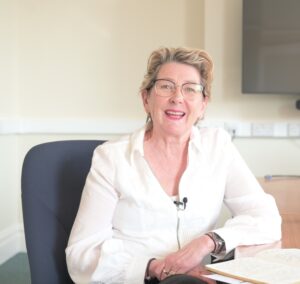
Bournemouth, Christchurch and Poole is brimming with prospects, positivity and pride.
We are an ambitious and forward-thinking council, supporting and working with vibrant and diverse communities. We are the custodians of a globally recognised coastline of opportunity, where people love to live, learn, work, explore, invest, relax and play.
Our vision is to be a place where people, nature, coast and towns come together in sustainable, safe and healthy communities. We will achieve this through our ambitions. For our people and communities, we want to ensure that everyone leads a fulfilled life, maximising opportunity for all. For our place and environment we want them to be vibrant places where people and nature flourish, with a thriving economy in a healthy, natural environment.
We are bold, confident about and proud of our organisation, our area, our people and our future. We hope that you are too and that you will consider working with us.
Bournemouth

Christchurch

Poole

Location
Population
We have a diverse population covering a broad range of ages, with a more ageing population in the east and a younger demographic in the west. There is a large Polish and Jewish community, and a variety of faith groups. Bournemouth is host to a large language school community. There is an established LGBT community, and the area hosts Bourne Free, an annual festival to celebrate diversity.
We employ more than 5,000 people and provide services to around 400,000 residents from Hamworthy in the west to Highcliffe in the east. It has the twelfth largest resident population of any council in England. This scale means a higher percentage of our budget can be spent on frontline services.
We have an outstanding, world-renowned coastline, which runs for 15 miles, from Hengistbury Head through to Sandbanks in Poole. Our investment and efforts into our beaches is nationalyl recognised with 21 Blue Flag or seaside awards. Our coastline plays host to a number of events and festivals attracting large numbers of visitors throughout the year.
Transport
The area has great transport links with excellent rail and road connections nationally. We have direct trains to London and the north of England, international flights from both Bournemouth and Southampton airports and regular ferry services to the Channel Islands and mainland France.
Find out more detailed travel information about: Bournemouth, Christchurch, Poole
A few words from Cathi Hadley - Corporate director of children's services

Our Values

Benefits, Wellbeing and Support
Our Wellbeing Charter explains our commitment to supporting wellbeing, it includes the steps colleagues can take to enjoy a happy, healthy and productive time, both in and outside of work. The Charter also sets out what colleagues can expect from BCP Council as an employer to support their wellbeing and details our expectations in terms of colleague’s self-care.
Nearly 50% of our employees in social care jobs work flexibly and in a recent survey 83% of our employees felt that their manager was considerate of their home life.
We want to reassure colleagues that we understand the impact of stress on our workforce. This means we have a general stress risk assessment in place. We also have individual and workplace stress self-assessment forms available for completion if and when needed. In terms of support, colleagues can access resources to combat stress via our EAP and the WellNet portal. WellNet is managed by the NHS and has lots of great resources to tackle issues like stress or anxiety.
All staff can join the BCP Council pension scheme which is part of the wider Dorset County Council scheme. The Local Government Pension Scheme (LGPS) is a tax approved, defined benefit occupational pension scheme. The benefits under the scheme are set in law and are based on the length of your membership and your final salary. The alternatives to joining are to take out a personal or stakeholder pension or rely on the state pension.
We recognise the costs involved in relocation and in an effort to be as flexible as possible offer a great relocation package for professionals planning to move to the area. There is the opportunity to apply for up to £8000 relocation costs. It will be specified on the job advert if the relocation scheme is applicable to the post.
Our Employee Assistance Programme (EAP) is in partnership with the award winning Health Assured. Our colleagues can access confidential, expert advice and guidance 24/7 which includes short term counselling along with CBT, legal information/guidance and bereavement support. Health Assured also provide an online health portal and access to the My Healthy Advantage app.
Colleagues can access a number of benefits from discounted gym membership to our eyecare voucher scheme.
We recognise that colleagues enjoy agile working following COVID-19. Colleagues can choose to either work from our offices or from home. Colleagues also have flexibility in terms of the hours they work, however there is a more formal system for flexible working in terms of putting any request in writing for approval by management.
We recognise that a large proportion of our workforce are women, due to this colleagues can access our menopause peer support group who meet monthly via Teams. Health Assured also provide online CBT support and up to date resources via their portal and app.
Our Mental Health First Aiders (MHFA’s) are colleagues trained to listen, support and signpost to local services. They are crucial to helping boost employee wellbeing and they receive refresher training and attend regular meetings. Our MHFA’s provide confidential support but not counselling.
As part of the Health & Wellbeing Programme, we have taken advantage of the government’s Green Transport Plan and introduced a Bike to Work scheme. This scheme allows you to lease a bike and safety equipment over a 12-month period for use in travelling to, from and at work. The lease cost is deducted from your gross pay in equal instalments over a 12-month period and you can lease equipment up to the value of £1000 inclusive of VAT.
We have a number of networks across the council to support our diverse range of colleagues. These groups provide a safe space to raise work-related issues that may impact you and your colleagues, and to discuss what the council – as a major employer and community leader – can do to improve your working experience. Our networks cover race and cultural diversity, LGBTQ+, religion and belief, disabled people and women.
Specifically for children’s services we have a progress forum, a staff led group for colleagues wanting to share their views and be part of creating change. Endorsed by our leadership team, we are able to share the views of colleague in a positive and supportive way, to try to effect change across the directorate.
BCP Partnership Academy
BCP Partnership Academy has a wealth of resources that social workers can log into to access.
It promotes and enables a professional learning culture, improving professional practice and driving up standards to deliver high-quality services to the children, young people and families living in Bournemouth, Christchurch & Poole.
Teams
Aspire is one of the first regional adoption agencies to be set up in England, and provides adoption and special guardianship services for BCP Council. We work in partnership with Families for Children, a local voluntary adoption agency.
Continuous assessment is a constant feature of good practice from the referral through to case closure.
Social workers sit in four pods with a four-weekly turnaround (the 20-day time limit on assessments).
BCP Council uses a Signs of Safety framework for assessing, based on the simple questions– ‘what are we worried about?’, ‘what’s going well’ and ‘what needs to happen’?
The service is staffed by three teams, with eight personal advisors (PAs) and a team manager in each. The work base for the service is flexible, with options to work in offices across the BCP area and a duty system based from our award winning young people’s hub in the centre of Bournemouth town. PAs support an average of 22 young people each, with close working alongside partners such as housing, health, probation and local voluntary organisations key to our successes.
We are looking for experienced social workers ready to take the next step in their career, or those with management experience already, who have a passion for supporting our personal advisors in their work with young people into early adulthood and beyond. The journey into the world of independence can be challenging for our care experienced young people, and as their corporate parent we want to make sure we give them the best possible foundations. Our ambitions for our young people, and our staff team, are high.
The Child Health and Disabilities service (CHAD) is a specialist service situated in frontline children’s services. Eligibility for the service is based mostly on child’s disability and complexity of needs.
All children are children in need (CIN). The CHAD team will work with families (including siblings if required) where it is identified that support services are needed and are not available at the Universal or Early Help levels.
This includes provision of short breaks away from home and help for those families who are at risk of breakdown without the provision of specialist support services. This does not include short breaks – positive activities. Level of support, including the visiting pattern, will be assessed on an individual basis.
Our Children & Family First (CFF) service consists of six teams, each consisting of a team manager, assistant team manager , seven social workers and one family support practitioner.
The service works with children and families that transfer from the assessment service, working with the family in a strength based to safeguard children under a child in need plan, or child protection plan. As a social worker within the CFF Service you may also work with children and young people who become looked after until they are either successfully rehabilitated home, or up until the second child looked after review if the plan is for long term care.
All social workers get dedicated 1:1 personal and case supervision alongside group reflective supervision. Within BCP we have an extensive training offer to support the development of all our staff and work closely with Bournemouth University , within our Social Work Teaching Partnership which has well established post qualifying support programme.
Our children in care service consists of four teams, each team manager has responsibility for managing approximately six social workers and caseloads are balanced with an average of 18 children per social worker. The service works with children from the point of permanency decisions being made and includes supporting unaccompanied asylum seeking children.
Within the children in care teams, we take a balanced approach to managing caseloads with caseloads averaging around 18 per worker .
Early Help is a distributed service, with some staff in the service sitting in the Multi-Agency Safeguarding Hub (MASH), some in the locality-based family hubs and others providing specialist programmes designed to prevent children from being ‘stepped up’ to more critical interventions.
Early Help 1 (EH1) are the teams providing programmes and supporting school inclusion while in Early Help 2 (EH2), six family support teams and youth support services are based in locality hubs across Bournemouth, Christchurch and Poole.
The direction of travel for Early Help is to prevent children needing escalation to social care and to work in support of the team around the school model for the 100+ schools and colleges in BCP, thereby reducing the sense of disengagement some young people feel which may at times lead them into conflict with their school or college.
Our specialist edge of care team was set up in January 2021 after a pilot project to reduce the number of children and young people coming into care. The team is made up of youth workers, adolescent support workers and parent/carer support workers. The purpose of the team is to support young people and their families in order to keep young people out of the care system when being in care is not in their best interests.
Edge of Care support is agreed via a weekly panel and once agreed involvement is for a period of about 12 weeks. The offer is a worker allocated for the young person and a worker for the parents/carers, a restorative and trauma informed approach to repairing relationships within the family, positive activities for the young people and weekly multi agency progress/review meetings to ensure a robust oversight of the plan and agreed actions and to avoid any drift and delay. The edge of care workers do not ‘take over’ from the social worker but work alongside them and involved partners (usually health, education, housing and voluntary and community sector).
In line with national trends, over 70% of children in care in Bournemouth, Christchurch and Poole are fostered. Whilst some local authorities deem therapeutic fostering to be a specialist placement, we believe that every foster care placement needs to be therapeutic and to provide a child with a healing environment. We are committed to developing and supporting our carers to provide the very best care to every child entrusted to our care.
Our Fostering Services is comprised of five teams. The teams are generic in accessing and supporting mainstream and connected carers with each team having a specific area of specialism:
- Adolescence
- Initial Enquiries
- Parent and Child
- Shared Carer
- Fostering Duty and Supported Lodgings
The voice of the child is essential in the review and monitoring of fostering families. We work creatively to ensure that the voice of the child is present in the carer’s annual reviews and in work undertaken with our carers. The team have developed several tools to support children of all ages and abilities to tell us their views of how they are being cared for.
We are delighted that the Independent Reviewing Service (IRS) has recently expanded, and we now have 18 IRO/CP chairs. This means that caseloads are in line with the IRO handbook and CP chairs’ caseloads provide the conditions to do impactful work.
We create an environment where our staff undertake their role and responsibilities to a high standard, experience job satisfaction and a good work life balance. The service manager and two team managers have an open door policy and encourage a culture where learning and development is key. Collaborative working in respect of service development within the service and the team is known for being supportive of each other and welcoming to new staff.
We are looking for passionate social workers, experienced in safeguarding that can keep children central in their work. You will thrive on building relationships, working together and can hold professionals to account to get the best for the children that we serve.
We are dedicated to delivering the best we can for our young people and the development and support of our staff is vital in our work; the training and support offered within the service is of a high quality and we aim to lead by example for our young people.
The Multi-Agency Safeguarding Hub (MASH) uses a duty system. The core team is a duty pod, with social workers and early help practitioners sitting in the pod on a rota and co-located at Poole Police Station. An education worker, domestic abuse worker and a mental health worker will join the duty pod, making a total of six workers in the pod every day.
Each MASH team member is an expert or champion in a specific issue. For example we have a perinatal expert who holds regular meeting with the local midwifery team.
BCP Council has its own Children’s Services Out of Hours team who operate in the evenings and at weekends to ensure that children and families in crisis can continue to access support.
The team works alongside daytime services to respond to the needs of children and young people who may be at risk of harm outside normal working hours.
The work can be varied and it often involves a multi-agency approach, alongside our police and health colleagues, to apply and agree immediate safety planning and actions with families where situations can’t wait for daytime services.
Our Public Law Outline (PLO) and court service consists of two teams, each consisting of a team manager, assistant team manager, six social workers and one family support practitioner. The service will receive cases from the assessment service or children & family first service at point of initiation of PLO or initiation of care proceedings. The team will then work within a strength based manner to support changes required under the PLO process, or if within the court areas, until permanency is achieved.
Within Children’s Services we have a statutory SEND team (for children and young people with the most complex and highest level of need requiring statutory support) and a broader range of services that support SEND such as the Early Years Portage Service, Education Psychology Service (EPS), preparation for adulthood co-ordinator (PfA) and SENDIASS (the arm’s length information and advice service); most of the services across children’s services provide support in different ways to children and young people with SEND and their families.
BCP Council take a graduated response approach so that levels of support increase or decrease with a child or young person’s level of need, as we do across the rest of Children’s Services. For SEND this is set out in the Graduated Response and is set out for three age groups: early years, school age and post 16.
Hear from our Social Workers
Meet Toni, Jamie and Selina – they explain what they do and why they are so passionate about their jobs!
Children and Young People

Children and young people are very active in supporting the direction of travel for the service in BCP.
We have a Children in Care council as well as a wide range of forums, meetings and groups so we can hear and understand the voice, views and experiences of our children and young people. This all informs how we practice, how we deliver services and what we need to change to have more impact on their lived experiences.
If you believe in the voice of young people and want to help develop BCP with young people at the centre of what we do, it would be great to hear from you!












 Facebook
Facebook X
X LinkedIn
LinkedIn Instagram
Instagram
Comments are closed.